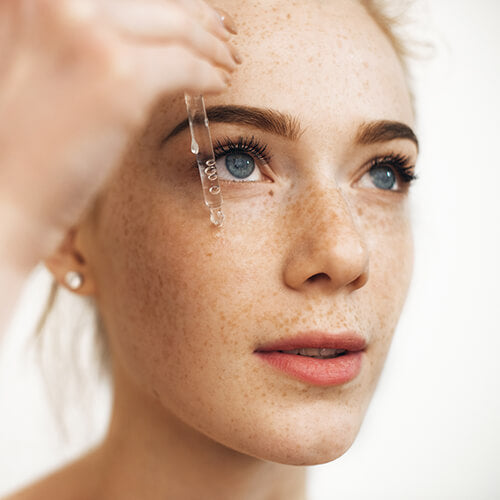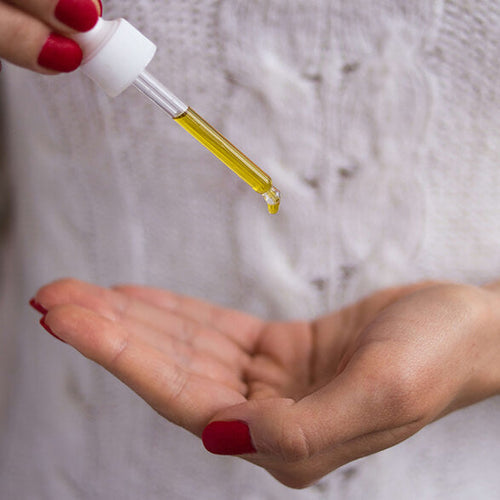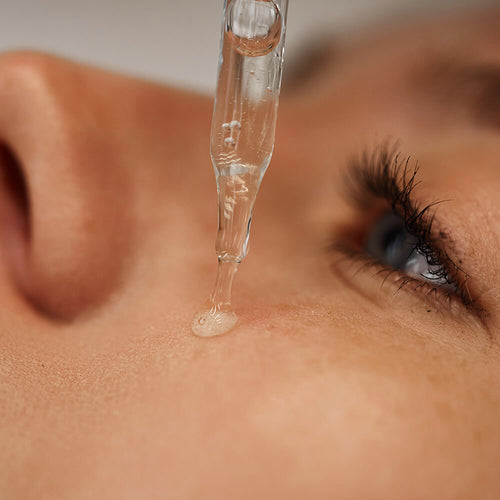
Ingredient Spotlight: Zinc Oxide
The mineral zinc oxide has been used in skincare for centuries, known for its many benefits, including: sun protection, wound healing, and fighting acne. So exactly why is zinc good for keeping skin healthy, and what products contain it? We talked to Dr. Sandra Lee (aka Dr. Pimple Popper) to find out.
Published:
3 minute read
You’re probably familiar with zinc oxide: the white-nosed lifeguard look has become an iconic symbol of the 1980s. But beyond sunburn protection, this mineral has been used in skincare for many centuries — and it’s currently enjoying a moment. We’ll tell you why.

3 minute read
- What is zinc oxide?
- Is zinc oxide good for your skin?
- What skincare products contain zinc oxide?
- Does zinc oxide penetrate your skin?
- Dr. Lee’s last word
What is zinc oxide?
Before we dive in, let’s start with zinc itself: this naturally-occurring metal is a trace nutrient, the second most abundant in the body after iron. Although it’s most bioavailable in meat sources, zinc is commonly found in a variety of foods, including:
- Lamb
- Pumpkin seeds
- Grass-fed beef
- Chickpeas
- Cashews
The mineral zinc is estimated to be involved with catalyzing over 100 enzymes, as well as protein production (including collagen) and gene regulation. Every single cell in the body — including skin cells — requires zinc in order to function.
Heating elemental zinc and adding oxygen creates the compound zinc oxide: a white solid that can be used for a variety of skincare applications.
Is zinc oxide good for your skin?
Though it’s become increasingly popular in the past half century, the virtues of zinc oxide have been known for millennia: both the ancient Greeks and Indians used it to treat wounds. Research has shown that zinc oxide has a variety of skin benefits, including:
- Sun protection
- Wound healing
- Reducing inflammation
- Collagen synthesis
- Inhibiting bacteria
- Regulating sebum

What skincare products contain zinc oxide?
Because it has such a broad variety of uses, zinc oxide is added to many different types of skincare products, including:
- Sunscreen. Studies have shown that zinc oxide provides broad spectrum protection from both UVA and UVB rays.
- Diaper rash ointment. Safe for a baby’s delicate skin, the compound forms a protective barrier, inhibits bacterial growth, and speeds healing.
- Foundation/BB creams. The FDA has approved zinc oxide as a color additive in cosmetics. Studies also indicate that zinc oxide is an effective preservative.
- Acne remedies. It’s an antimicrobial and anti-inflammatory that helps regulate sebum and doesn’t create antibiotic resistance. Try SLMD Clear Out, a treatment mask that also contains salicylic acid and sulfur.
Does zinc oxide penetrate your skin?
The recent popularity of zinc oxide as a skincare additive — especially its use in mineral sunscreens — is largely due to new technology that allows the compound to be reduced to very small sizes. Known as nanoparticles — aka ZnO NPs — their tiny size has allowed cosmetic chemists to formulate mineral sunscreen products that don’t leave a characteristic white streak.
However, this led to some concerns that the zinc oxide might be able to penetrate into skin cells — and even the bloodstream — which could theoretically produce toxic effects. Multiple studies have suggested that this is not the case: that repeated application of zinc oxide does not in fact penetrate much at all, and if/when it does, the quantity is not sufficient to produce harm. Research is ongoing, but most experts agree that ZnO NPs are safe for topical applications.
It's worth noting, though, that inadvertently inhaling or ingesting these nano particles when you’re using powdered makeup, or spray sunscreen, for example, has been shown to cause damage to tissue like lung cells. For this reason, many experts suggest avoiding powdered or aerosol products containing nano technology.
Dr. Lee’s last word
We’re starting to see a lot more zinc oxide skincare products come onto the market, particularly in mineral-based alternatives to chemical sunscreen. But dermatologists have long known the benefits of zinc oxide for soothing skin, inhibiting bacterial growth, and regulating oil production. This makes it an ideal ingredient for an anti-acne regimen.
—Dr. Sandra Lee

















